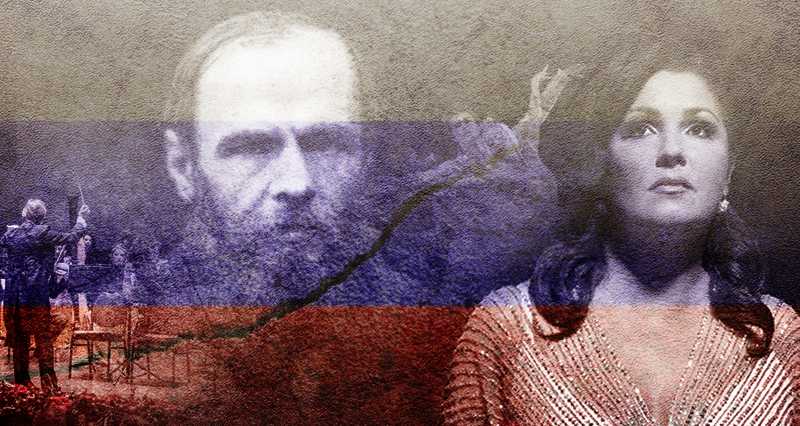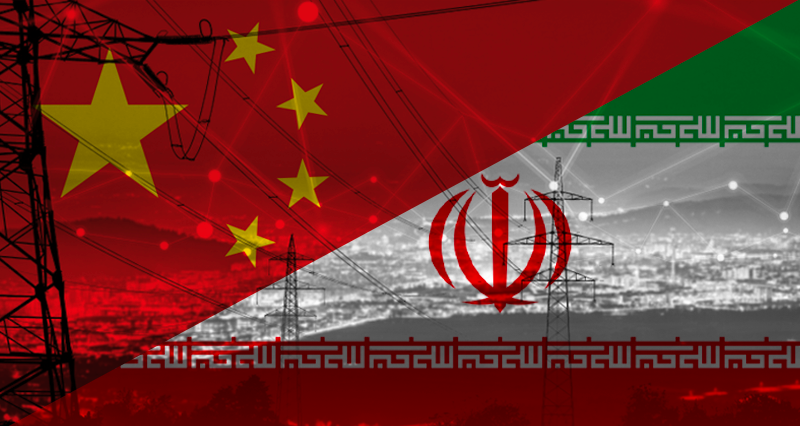The launch of Russia’s special military operation in Ukraine to demilitarize and denazify the Kiev regime has definitively taken to surface open Russophobia in Europe and in the entire West.
Russia has been hit by heavy economic sanctions. But for the first time, these sanctions have been widened to include athletes, the media and the world of culture. In this regard, Russian Foreign Minister Sergei Lavrov, said that the Russian government had expected sanctions, but not that these “would have hit athletes, intellectuals, actors and journalists”.
In Italy, we have had several examples of sanctions that represent a kind of new McCarthyism 2.0 against Russia.
The author and translator of Russian classics, Paolo Nori, had been invited to hold a seminar on Fedor Dostoevskij at the Bicocca University of Milan. However, he saw his appointment postponed “in order not to provoke tensions”; then, it was canceled, and finally rescheduled. On the wave of protests that the decision of the Bicocca University had aroused, Nori then declared: “I don’t continue with Bicocca seminar, but I have received a hundred invitations from various institutions. Instead of the four lessons that I was unable to do in Bicocca, which they had asked to broaden to Ukrainian authors, of whom I don’t have knowledge,I will do about thirty lessons all around Italy”.
Nevertheless, what kind of link can there ever be between one of the greatest Russian writers – who had have and still continues to have a strong influence on all Western culture – and the Muscovite operation in Ukraine? None, in hindsight, but someone must be convinced otherwise, given that the mayor of Florence Dario Nardella was asked to remove the statue of Dostoevsky in the city. The monument had been donated by the Russian embassy for the 200th anniversary of the author’s birth.
The Russophobic hysteria that has erupted in the West is causing shows with Russian artists to be canceled one after another. It began with the Scala in Milan where the conductor Valery Gergiev, a personal friend of Putin, did not yield to the request of the superintendent Dominique Meyer and the mayor Beppe Sala(Partito Democratico) to distance himself from the operation and from Russia and who was therefore replaced on the podium. Then it was the turn of the soprano Anna Netrebko, who although she condemned the conflict, made it known that she does not intend to go on that stage next March 4th, when she was supposed act with the opera of Francesco Cilea, Adriana Lecouvreur.
The Yacobson Ballet of St. Petersburg had to cancel the next Italian tour “because” of the impossibility of organizing the trip in the current situation.
The Venice Biennale also takes an anti-Russian position and announces, “It is collaborating and will collaborate in every way with the national participation of Ukraine” in the 59th International Art Exhibition, opening on April 23, and takes “a close stance to all those who in Russia are courageously opposing the war”. Then it assures that “it will not close the door to those who defend freedom of expression and demonstrate against the unnoble and unacceptable decision to attack a sovereign state and its defenseless population”.
On the other hand, it will refuse “any form of collaboration with those who have instead implemented or supported an act of aggression of unprecedented gravity, and will not accept the presence official delegations, institutions and personalities in any capacity linked to the Russian government” at its presentations.
In Bari, someone even gets to take it out on San Nicola. The only fault of the statue of the Apulian capital is that it is appreciated by Putin, to the point of having an autographed dedication of the Russian president near the pedestal.
“That dedication plaque of Vladimir Putin, located a few steps away from the Basilica of San Nicola, must be removed”. This is the request of a petition launched on change.org by a citizen of Bari. In a very short time, the petition has collected over 11 thousand signatures, even from outside Puglia. Many have joined the petition demanding from Apulian Regional Council the removal of the plaque that had been placed in 2003 behind the statue of the bishop of Myra on the square in front of the Basilica of San Nicola in Bari.
It is worth noting that Putin’s message to the citizens of Bari is a message of peace and brotherhood, given the “centuries-old ties” that unite the Apulian capital and Moscow. “May this gift be testimony not only to the veneration of the great Saint by the Russians, but also to the constant aspiration of the peoples of our countries to consolidate friendship and cooperation”.
Decay and collapse of Western culture
The episodes reviewed represent a clear picture of the point of no return reached by the liberal-democratic West. Firing Russian pilots or Russian conductors, blocking the participation of Russian musicians in international competitions, terminating collaboration with Russian scientists at CERN, excluding Russian documentary filmmakers from film festivals, cutting academic relations with Russian professors, excluding Russian books from stands, are not just sanctions but a real institutional racism. We are in open xenophobia, with ‘cultural sanctions’ resulting from a narrow-minded and petty politically correct.
During the Cold War between the United States and the Soviet Union, the situation had several time escalated into a brink of a World War. In those circumstances, it never happened that Russian artists were prevented from performing in the West.
In 1968, as Soviet tanks stormed Prague, Russian cellist Rostropovich performed in London playing pieces by Czech composer Dvorak.
Today not only are all living Russian artists excluded from theaters, museums and film festivals, but the censorship reaches a point – as seen with the Bicocca University affair concerning Dostoeveskij – where even the art and culture of past centuries is targeted.
Now in a declining West, cultural and democratic crisis, the only freedom left seems to be the capital. Even in the past, there have always been strong restrictions on dissent in the self-proclaimed ‘free world’, but these were masked. They were surmounted by the rhetoric of the democratic camp and of freedoms. Now, however, the mask has fallen and we have entered a new phase: the globalist, affluent and obsequious groups of supranational economic interests refuse to recognize the legitimacy of any other vision, whether it is the popular common sense of the proletarian classes, or whether it is a question of ‘foreign’ cultural traditions.
Liberalism – where democracy is purely formal – has also become an intolerant orthodoxy from a cultural point of view, unable to stand up to different world views.

















Leave a Reply